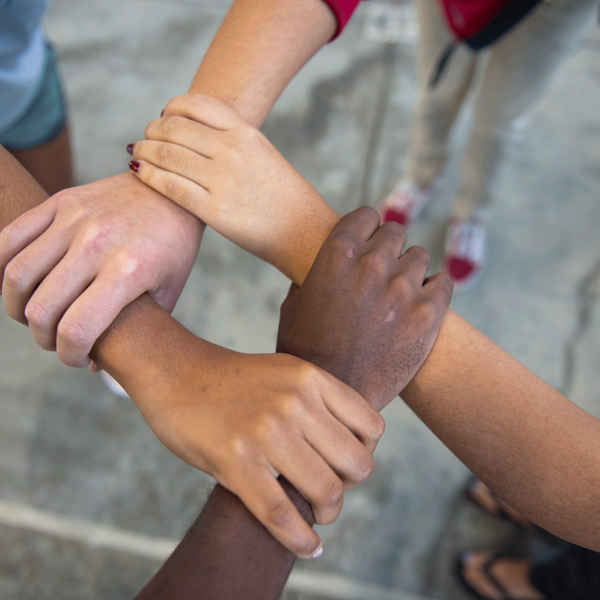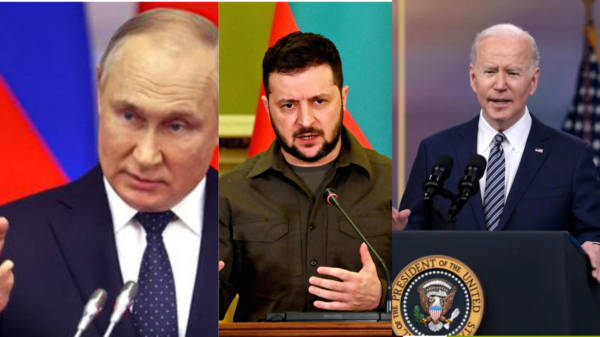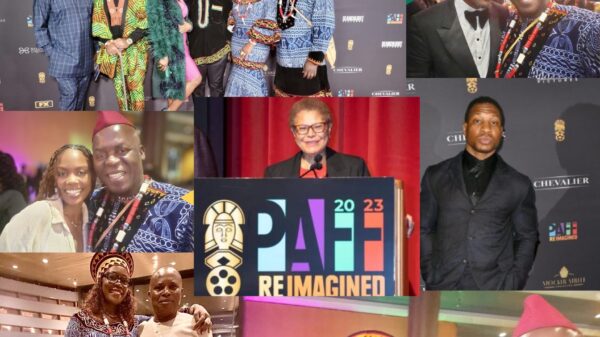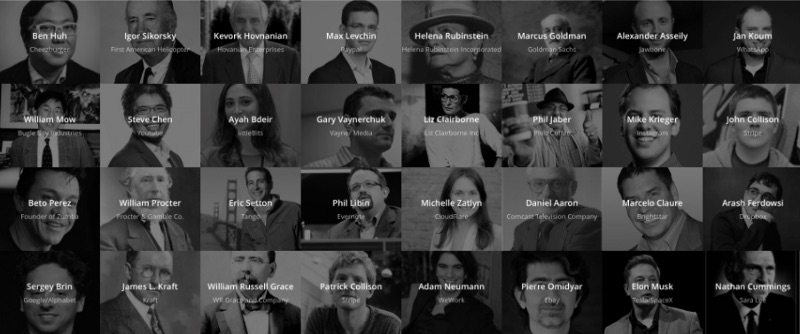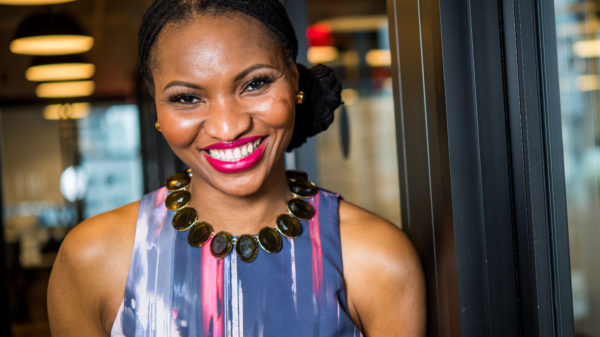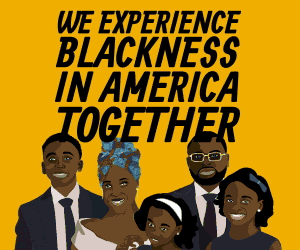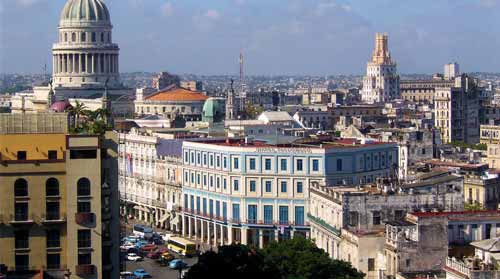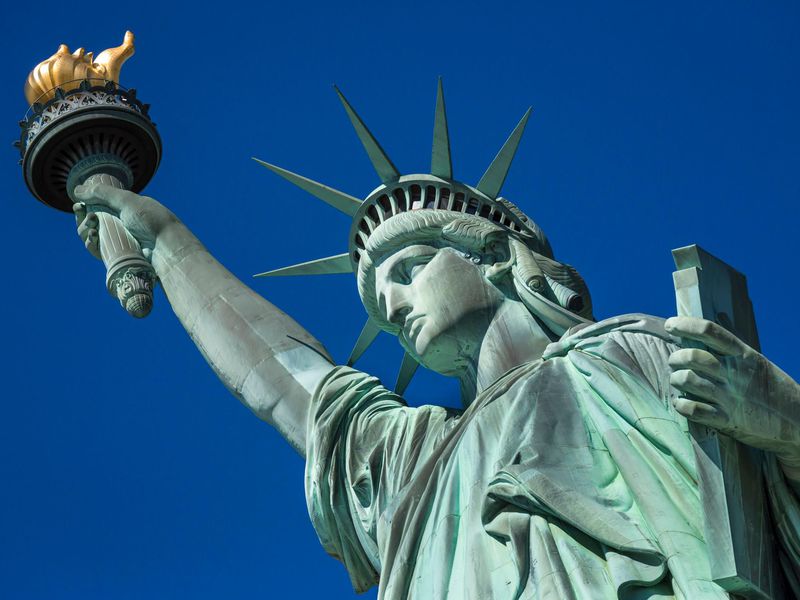
Magazine, The Immigrant Experience, White Bear Press,
There are many paths immigrants take to live in the United States.
Four stories presented at St. Mary’s Catholic Church during an event sponsored by the church’s social justice committee this month highlighted the various ways people come to the U.S. to live. The four speakers were all people that someone at the church had a connection with, said church member Kathryn Lien.
Malika Benachour is a French-Algerian who first came to the U.S. as a student. Catalina Morales Behena crossed the Mexican border with her parents. Babatope Adedayo won the diversity lottery in Nigeria. Mainhia Moua’s parents came to the U.S. as refugees from Laos after the Vietnam War.
Education leads to desired wintry home
Malika Benachour didn’t like the heat.
She grew up in France after her family immigrated from Algeria, in northern Africa. She always viewed education as the key to following her dreams, so she studied hard, including foreign languages. She started traveling — Scotland, Iceland, Canada, the U.S. When she visited family in Africa, she decided she needed to settle in the far north because it was too hot and she was afraid of snakes.
By this time, she was married and had a daughter. They didn’t want to move to Iceland with her so her family headed to Minnesota where she would study for a Ph.D. at the University of Minnesota.
“Once I settled and felt comfortable, I became a teacher to give back what was given to me,” she said. She is a principal and teaches French and Spanish in North St. Paul. Obtaining her green card (permanent resident status) was a positive experience and she was well treated, she noted. People who enter the U.S. on a student visa typically need to find employment in order to obtain a work visa after completing their studies. An employer can then sponsor them to obtain a green card.
“We don’t control what we were given, but we sure can control the goals we have in life,” Benachour said. She never took time to feel sorry for herself when she had to fight through tough times in survival mode.
She also felt most people have been very culturally responsive in Minnesota. They try to pronounce her name and connect with her.
Still, she sometimes worries if people might be against her because of her Muslim background or cultural differences. She said many of the racial and cultural barriers she feels are things she needs to overcome in her own head.
“It’s a feeling that often cannot be validated by facts,” she noted. “Sometimes it can be in our head, and a lot of times it is.”
Crossing the border to an undocumented life
Catalina Morales Behena is one of the 800,000 “Dreamers.”
She first crossed the Mexican border with her parents when she was 2 years old. She grew up in Illinois not really knowing that her parents were undocumented immigrants.
When local law enforcement started working with immigration officers to deport illegal immigrants in her community, her mom, now a single parent, lost her job.
“My mom gave up and she decided one day after picking me up from middle school that we were going to Mexico,” Morales remembers. “I actually didn’t know what that meant.”
Morales was struck by the poverty she saw in Mexico City. People nearby lived in cardboard boxes. Her mother was too old to find a job in Mexico so after a few years, she hired “coyotes,” or human smugglers, to take them back across the Rio Grande and through Texas. Morales said the river almost swept her away.
The dangers of crossing the border are hard for people to understand. “You can’t make sense of people trying to live and survive,” she remarked.
The first time Morales realized what being undocumented would mean for her life in the U.S was when she told her mom how excited she was to get her driver’s license. Her mom let her know that wouldn’t happen.
However, six years ago she was granted Deferred Action for Childhood Arrivals (DACA) status.
The executive immigration policy allowed children brought illegally to the U.S. to receive a renewable work permit and license; they are commonly referred to as “Dreamers.” A related DREAM Act (Development, Relief and Education for Alien Minors) was proposed in Congress but did not pass. It would have offered a path to citizenship.
Morales is a student at St. Thomas University and works at ISAIAH, a social justice nonprofit. She said she doesn’t understand why she and her mom can’t find any pathway to permanent resident status after living here 24 years and paying taxes.
“We need to realize this isn’t about politics,” she said. “This is about real people. We don’t have to go to the border to meet people who are directly affected by this. They are here in Minnesota in the cold.”
Winning the diversity visa lottery
Babatope Adedayo struck luck in the diversity visa lottery.
Adedayo almost missed his chance to immigrate to the U.S. because the notification that he had won the diversity lottery went to an old address. Miraculously, he said, a friend of a friend saw his photo in a publication indicating he had won. “I would have lost out,” he said. “I had forgotten about it.”
The diversity visa lottery allows 50,000 people per year into the U.S. from certain countries based on quota, Adedayo said. The lottery is free to play. Recipients are granted green cards and can apply for citizenship within five years.
He came to live with a cousin in Minnesota. Adedayo lived a privileged life in Nigeria and came from a royal family. “I came to the U.S. when I was 28 and never had to work (previously),” he remembered. After he had been in the U.S. six months his cousin told him he had to work. He started work at a manufacturing company and thought, “This is not the place for me.”
So, he went back to school. When someone immigrates to the U.S. their background is usually meaningless. He had a bachelor’s degree in theology but that meant nothing in the U.S. He also felt like he had lost his identity. “I never knew what it meant to be black until I came to the United States,” he said. He is Nigerian and from the Yoruba tribe, but he felt like he was just a “black man.” His professor wouldn’t try to pronounce his name.
But there were other people who helped and blessed him. He got through the tougher times and now works for the State of Minnesota supporting diverse small businesses. He said he is proud to be an American citizen.
“Sometimes you might not be proud to be an American, but because of people like you I have made a decision to become an American citizen,” he said.
Second generation remembers refugee journey
Mainhia Moua was a translator in elementary school.
“It was fun to translate my student conferences to my parents,” she remembered. Her parents were refugees from Laos following the Vietnam War. Communist forces attacked Hmong villages whose residents had assisted the U.S. during the war.

